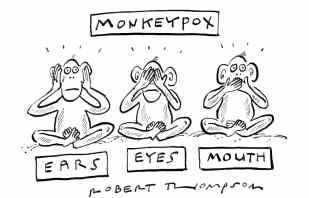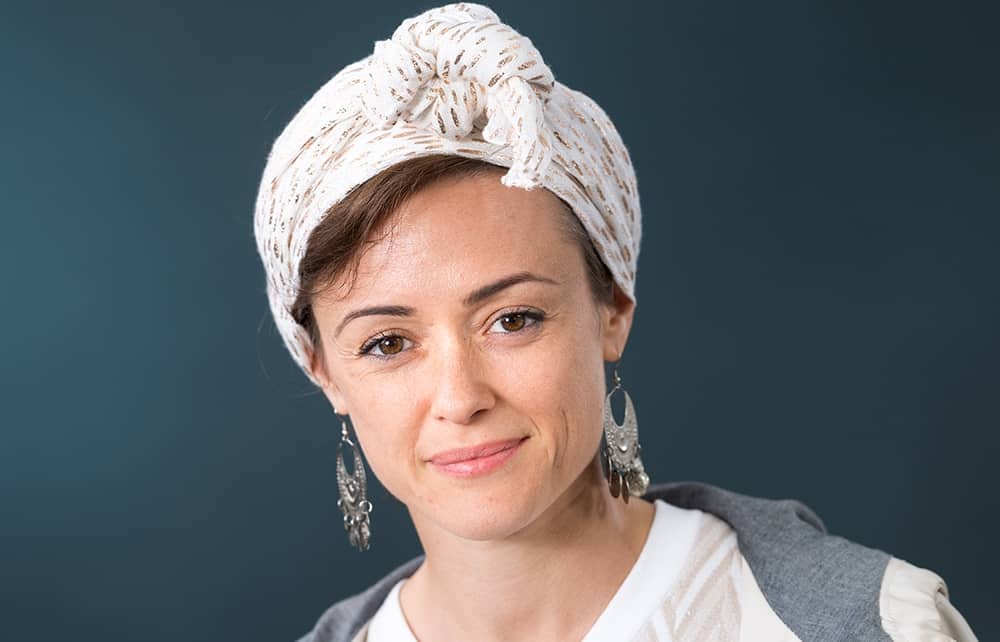These Bodies of Water begins dramatically (as befits a book derived from Sabrina Mahfouz’s Royal Court show A History of Water in the Middle East) in a stuffy little room in Whitehall where the author is being interrogated by a man in a beige mac who is vetting her for top security clearance. It all sounds a bit James Bond, except that Mahfouz is more like an ‘Egyptian Guyanese Nancy Drew’, as a boyfriend joked – extremely unusual in the civil service fast stream as a woman, working-class and Middle Eastern (her father is Egyptian, her mother is Guyanese-British). While her peers laugh off questions like ‘Have you ever had sex with an animal?’, Mahfouz finds herself ‘existing purely in opposition’ for the first time in her life. It’s a ‘sudden and vicious shift’. But when the man in the mac asks her about water and empire, she becomes, very fruitfully, ‘obsessed’.
After noting the irony that the Middle East was ‘seen as sand and oil, dry and scorched. But their water had enabled the empire and its legacy’, Mahfouz launches into a mix of polemic, memoir and history lesson. She describes falling in love with the Nile as a child, and then, as a teen-ager, gazing at Cleopatra’s Needle, excited that ‘a woman from the Middle East could turn up in the centre of imperial Britain and take up space as long as she was a queen, and represented by a granite needle’. Later she learns that the obelisk has nothing to do with Cleopatra. Commissioned by the pharaoh Thutmose III, added to by Ramesses II, who inscribed it with his military victories, and given to Britain by Muhammed Ali, ruler of Egypt and Sudan, it took its name from the container that transported it, which happened to be called Cleopatra. Mahfouz is sympathetic to Egyptian calls for its return, but admits that its presence in London has often been important to her.

From there she skids to her university years, where she paid her way by stripping, and was told to learn belly dancing, get some bangles and call herself Cleopatra. It worked: it was soon after 9/11, and her act gave men (rich, white, mostly American) a dubious thrill. While she knew that she was colluding in post-colonial power play (not least because a staple of the great 19th-century exhibitions was an immersive theatre show called ‘Cairo Street’, complete with belly dancers and camels), stripping also helped her ‘claw back a sense of sexual power after years of sexual violence’, gave her ‘a sense of family and belonging’ and enabled herto study.
There are moments when this book hectors and lacks nuance. The excoriating chapter on Palestine might at least have considered the idea that Jews living in the Middle East were also affected by British meddling. But when Mahfouz is on a roll, clever, witty and making dazzling connections, it’s exhilarating. I enjoyed her informing her interrogator that her father would have been more likely to sing karaoke than tell her about the Suez Canal. And I laughed when she describes how, in a particularly surreal bit of her MoD training, she watched a promotional film about British tanks, with a soundtrack of Frankie Goes to Hollywood’s ‘Two Tribes’. I also shared her delight that the Jordanian government is tackling the water crisis by training women to be plumbers, hoping for a female taskforce to repair leaks and stop water waste: ‘I imagine those superhero women with plungers, and I love them already’ – and then she writes a song for the Jordanian feminist plumbers to sing.
Mahfouz never got security clearance. But her vetting process revealed something to her about the way Britain works, with
those in power never needing to explain or justify their power, but those without it having to scramble around in their every memory to think of reasons why they should be allowed to stoop even slightly adjacent to such power.
She is still trying to change the world, still grappling with the legacy of imperialism, not as a civil servant but as an artist. She is refreshingly candid about the times she does not succeed in getting past the past; she regrets writing a play that represented ‘an Iraqi existing in relation to violence, specifically British violence’, rather than giving her a story of her own. ‘We must keep testing, pushing, reassessing,’ she writes; and in her willingness to examine her own motivations, dig into her history and dare to hope for change, Mahfouz leaves space for us to do the same.






Comments